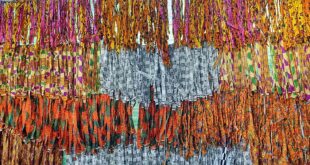Opposition leader Raila Odinga has rejected the result of the presidential election rerun of 26 October, which gave a landslide victory to President Uhuru Kenyatta. The veteran politician has vowed to challenge the legitimacy of Kenyatta’s presidency. Sekou Toure Otondi of the University of Nairobi argues that Odinga’s resistance to the government could in the long run benefit democratic development in the East African country. The scholar of political science also calls for continental support for “Odinga’s struggle for electoral integrity as a key cornerstone for democracy and rule of law”.
In his last address at Uhuru Park on the eve of Kenya’s 26 October election re-run, Raila Odinga announced the creation of what he called a National Resistance Movement. In a later interview with CNN, he clarified that the movement was a new wing of the opposition coalition, the National Super Alliance (NASA), which he led into the presidential elections in early August.
He said the resistance movement would complement the other arms of the opposition coalition and would pursue a peaceful, non-violent struggle. Its main objective would be to advance electoral justice in Kenya and across Africa as well.
His latest public address was expected to provide a radical way forward. But it fell short of expectations among his supporters who had anticipated a more radical announcement. In addition to the resistance movement, Odinga also created a “People’s Parliament” to protect election integrity, constitutionalism, democracy and the rule of law.
Odinga’s immediate aim remains to force a credible election in the next 90 days. To achieve this, the opposition alliance is seeking a total overhaul of the Independent Electoral and Boundaries Commission.
These moves come at a time when opposition leaders feel that the international community, led by the US and European Union, are reluctant to push for reforms. Many believe that they are conspiring with the ruling Jubilee coalition party to protect their own business, security, and diplomatic interests in the region.
The developments spearheaded by Odinga are, in my opinion, good for Kenya’s democracy. By constituting a People’s Assembly, NASA is seeking to put citizens at the centre of the struggle for electoral reforms, constitutionalism, and the expansion of democratisation.

Undemocratic Behaviour
The Jubilee administration, buoyed by an overwhelming majority in both houses of parliament, appears to be trying to roll back Kenya’s democratic gains. The fact that the party is also in control of the executive makes matters worse.
This is exemplified by its forceful passage of the controversial bill to amend the electoral process in the middle of the election cycle. Parliamentarians pressed ahead with the bill despite being cautioned against doing so by a wide section of Kenyan society and the international community. Some parts of the bill seem well-intentioned. But others, such as the provisions that prioritise manual voting mechanisms over the current electronic system, don’t augur well for the country.
The Jubilee regime has also embarked on a crackdown of civil society organisations deemed to be sympathetic to the opposition coalition. These include the Kenya Human Rights commission and Africog, a governance and public ethics non-governmental organisation.
In addition, members of the ruling party are openly calling for a “benevolent dictatorship” in Kenya. This call was first made by its vice-chairman David Murathe.
Benevolent dictatorships – which operate on the basis that certain democratic rights need to be ceded for economic gain – are cited as the reason for the economic rise of countries such as China and Singapore. But the same may not necessarily be true for Kenya. Under the one-party dictatorships of former presidents Jomo Kenyatta and Daniel Moi Kenya’s economy was stunted. In Africa the countries that have made economic progress such as Botswana, Namibia, and Mauritius are some of the most democratic.
Odinga’s Options
Odinga has three options to make sure Kenya’s democracy is strengthened, and not weakened.
The first is to file another petition to the Supreme Court. He can bring the case in his own capacity or sponsor like-minded civil society organisations to petition the court. The petition would challenge the credibility of the repeat electoral process and the legitimacy of Kenyatta’s presidency.
The other option is to sustain a civil disobedience campaign. This would involve peaceful protests and other forms of opposition such as an economic boycott of goods and service providers associated with Kenyatta’s regime.
The opposition could also call for street protests. The danger with this is that they could turn violent. Since the 8 August election demonstrators have repeatedly clashed with police. And in certain parts of the country NASA and Jubilee supporters have clashed in confrontations that could escalate into ethnic violence.
A final and extreme option would be for the regions that support the alliance to secede. The secession debate, which was triggered by NASA technical advisor David Ndii, has excited the opposition’s support base. Odinga himself, though cautious, seems to be sympathetic if what he calls “electoral authoritarianism” persists.
In reality NASA should be pushing for Kenya’s devolved system of governance to be strengthened with a view to redrawing boundaries and creating a federal system. This approach is likely to be well received in alliance strongholds, particularly in regions where communities have felt marginalised and disenfranchised by successive Kenyan governments.
Where does this all leave Odinga? Regardless of his future political trajectory, he has left a positive mark on Kenya’s political landscape. He has been at the forefront of the struggle for democracy, good governance, and upholding the rule of law. The Supreme Court has vindicated him. This is in addition to his campaign for Kenyans to boycott the repeat election that resulted in low voter turnout, leaving Kenyatta reeling with legitimacy question.
Odinga’s struggle for electoral integrity as a key cornerstone for democracy and rule of law should be supported by progressive forces across the continent. Retrogressive regimes have an uncanny way of entrenching themselves. Hence Odinga, and his alliance’s push should be contextualised in the wider struggle towards a functioning democracy for Africa.
Sekou Toure Otondi, PhD Candidate, Department of Political Science and Public Administration, University of Nairobi
This article was originally published on The Conversation.
 THE AFRICAN COURIER. Reporting Africa and its Diaspora! The African Courier is an international magazine published in Germany to report on Africa and the Diaspora African experience. The first issue of the bimonthly magazine appeared on the newsstands on 15 February 1998. The African Courier is a communication forum for European-African political, economic and cultural exchanges, and a voice for Africa in Europe.
THE AFRICAN COURIER. Reporting Africa and its Diaspora! The African Courier is an international magazine published in Germany to report on Africa and the Diaspora African experience. The first issue of the bimonthly magazine appeared on the newsstands on 15 February 1998. The African Courier is a communication forum for European-African political, economic and cultural exchanges, and a voice for Africa in Europe.















